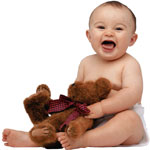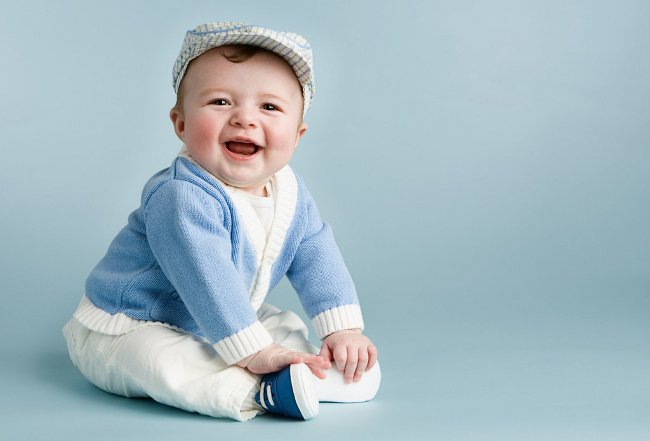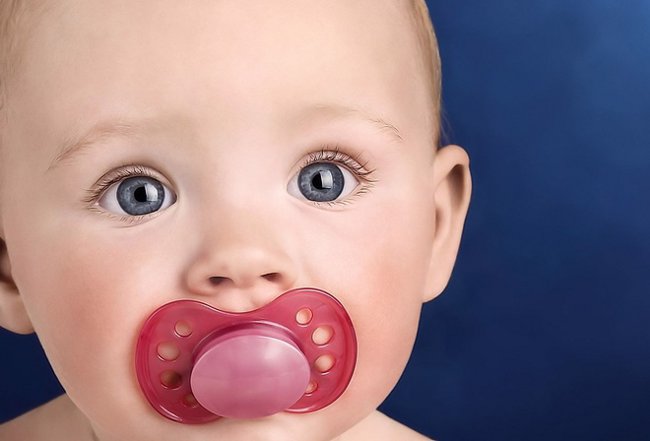Childhood fears

Problem children's fears sooner or later overtakes almost allparents. In most cases, childhood fears are a completely normal stage in the development of each child. But in some situations, childish fears can signal a child's psychological problem. How can you help your baby?
At each specific age the child experiences natural, so to speak, age-old fears. In the first months of life, all the fears of the child directlyare associated with its physical comfort. The baby is afraid of losing his mother because he is completely dependent on her. So, the disappearance of the mother from the sight of the child even for a few minutes is perceived by the child as the greatest tragedy - after all, the kid does not know how to keep track of time.
By the age of eight months a child may have fear of strangers. Most often this is not because these people are so scary, they are simply not "Mom". As a rule, starting from fourteen months, the child's fear of unfamiliar people gradually passes.
At the age of one to three, the child gradually begins to get out from under the full care of the mother - now he is learning to be independent. And the knowledge of this new world for him brings his childish fears. It is noteworthy that often the source of these fears are adults themselves.
Sharp remarks such as "You can not! You'll fall!"Or" Do not climb! It will be painful! "Parents do exclusively with good intentions, but by carelessness can similarly cause fears in the child. The kid will begin to fear not only falls, but also punishment from parents.
In its turn parental threats to abandon a child, give it to other people's people or leave in the dark almost directly lead to the emergence of childhood fears: fear of loneliness, fear of strangers, fear of darkness. Speculating on the fears of the child, the parents want to achieve obedience, but they do great damage to the tender psyche of the baby.
Various "horror stories" about Babu Yaga, Koshchei, Babay - all these are also sources of childhood fears. At the age of 2-3 years the child actively developsimagination, but the kid still does not know how to separate his fantasies from reality. For him, all the fairy-tale characters he heard about from Mom and Dad are real.
The baby grows up - his fears also grow up. At the age of 6-7 years the child is already aware of his mortality and, quite naturally, begins to fear his death and the death of his loved ones. This childish fear can manifest itself in nightnightmares, where a child is eaten by a beast or Baba Yaga. In no small degree contribute to the development of such fears and age, cruel films, cartoons, where there is violence and death.
Thus, most children's fears are well founded, because they are based on the child's natural need to be safe. In addition, the so-called healthy fear is veryuseful - it is he who protects the child from the desire to "get into trouble". He will not get to play with matches if he knows that it's hot, and will not drag the dog by the tail, knowing that she can bite.
But there are fears obsessive - phobias. Such childish fears make a childto experience extreme stress at the slightest hint of fear. Strong fear can cause nerve tics, stuttering, enuresis. In the future, a certain phobia can accompany the child for the rest of his life, causing him psychological discomfort.
If you do not fight childish fears, their consequences can affect the further development of the child's personality. But fight must be conducted correctly. First of all, we should try to find out the cause of fear. And not always it is obvious and "lies on the surface".
For example, one day a child might have been scared of loudbarking the dog and now is afraid of all similar or even very similar sounds, for example, the sound of thunder. And if once a child has been given a painful injection, he begins to be afraid of any person in a white coat, especially if he looks like a "tormentor" with the color of hair or hair.
therefore To identify the true causes of childish fear help with a psychologist. Already with a child of two to three years of age, such exercises are quite effective.
The next step is to provide the child with a sense of security. For a small child, mom and dad are omnipotent, so they seek protection and comfort from them. In no case can you ridicule the child's fear, scold him. This can only aggravate the situation.
Also It is impossible to use the "wedge-shaped" method to combat childish fears and leave the baby, for example, in a closed dark room! This entails only an even greater aggravation of fear!
If the child is afraid of the dark, it is better to turn on the lightand show him - there is no one. Then gradually it is necessary to accustom the child to darkness. For example, you can get a "magic" toy defender, a "magic" flashlight or a lamp.
Parents should make it clear to the child: no matter what happens, they are nearby and will always come to the rescue. It is not necessary to persuade a childbe afraid, but you can let him cuddle up to my mother's knee or put a hand on the child's head, "hiding" it. Physical contact with mother and father will allow the child to feel safe.














